42 how do food labels mislead consumers
Food labels mislead consumers - The Detroit News Despite the scientific consensus that GMO crops are safe, some consumers are interested in that information. But products using a GMO-free or non-GMO label that can't be produced with this... Food labels often mislead consumers | Oklahoma State University "What you can do now is educate yourself, learn about ingredients and question the food label claims," Kinsey said. "Get in the habit of asking yourself if the claim even makes sense and you'll begin recognizing the mass number of misleading label claims."
13 Misleading Food Label Claims and How Not to Be Tricked - Sentient Media Why Food Labels Are Misleading Overstating the benefits of a food product on the label in a way that leads people to pick up the item means more sales. Just getting a consumer to touch a product can be enough to create a sense of ownership of the item and increase the likelihood that they end up buying it.

How do food labels mislead consumers
Do Food Package Labels Mislead Consumers, Or Are They Misleading ... Using all three methods above, the researchers surveyed approximately 1000 adults about whether they would pay more for products with redundant labels, including non-GMO salt, gluten-free orange juice, and no-hormone-added chicken. Surprisingly (or not, depending on your perspective), 40-58% said they would. 15-point plan against misleading labelling and advertising The problem: Currently, food companies are allowed to hide the nutritional values of their products in the fine print on the back of the packaging. On front-of-pack GDA labels (for "Guideline Daily Amounts"), manufacturers use unrealistic portion sizes and misleading target guidelines to make the product look healthier than it actually is. The 4 legal ways your food labels can mislead you Zero doesn't mean zero . Products that boast "0 grams trans fat" or "no sodium" abound, but the labels may not mean what you think. FDA regulations allow small amounts of sodium, trans ...
How do food labels mislead consumers. Misleading Food Labels | Contact a Deceptive Food Labels Lawyer ... Along with consumers' increasing awareness about what they put in their bodies, however, comes the temptation for advertisers to use misleading or deceptive food labels to sell their products. Some of the more common misleading labels include: misleading organic labels. misleading "all natural" labels. false "preservative free" labels. Labels are Misleading | Food Crisis in the United States There is no legal requirement for the label "pesticide free" so food manufacturers can label just about anything they wish as "pesticide free.". These are just some examples of the weak regulations the USDA and FDA on food labels and how consumers in the United States are being mislead. This is a concern and civic issue because people ... Assignment Essays - Best Custom Writing Services Get 24⁄7 customer support help when you place a homework help service order with us. We will guide you on how to place your essay help, proofreading and editing your draft – fixing the grammar, spelling, or formatting of your paper easily and cheaply. Weight Loss & Diet Plans - Find healthy diet plans and ... You can mind portion sizes at home if you: Use smaller dishes at meals; Serve food in the right portion amounts, and don't go back for seconds; Put away any leftovers in separate, portion ...
How do food labels mislead consumers? How do food labels mislead customers? Front labels try to lure you into purchasing products by making health claims. In fact, research shows that adding health claims to front labels makes people believe a product is healthier than the same product that doesn't list health claims — thus affecting consumer choices ( 1 , 2 , 3 , 4 ). Understanding misleading marketing claims - Leatherhead Food The Food Information to Consumers Regulation. This states that a food label should not mislead consumers as to the characteristics of the food "in particular, as to its nature, identity, properties, composition, quantity, durability, country of origin or place of provenance, method of manufacture or production". 'Low-content' food labels are 'misleading' for consumers, US study claims A good example is the rise in products containing low-calorie sweeteners, which consumers have looked to in response to concerns about the health effects linked to excess sugar intake. The effectiveness of food and beverage claims extends to consumer responsiveness. A 2010 experimental study of the UK's traffic-light food labelling system ... Half of America finds food labels misleading - New York Post With sugar being the No. 1 concern for Americans and distrust of food labels being so high, it's no wonder that 93 percent feel like companies hide sugar in their products by using different words...
How food labels can mislead shoppers about fat content A spokesman for the Food Standards Agency, which has a role in policing labelling, said it was waiting for the EU to act on misleading claims such as 'light' or 'lite'. She said: 'There are no... EUR-Lex - 32008R1272 - EN - EUR-Lex - Europa Regulation (EC) No 1272/2008 of the European Parliament and of the Council of 16 December 2008 on classification, labelling and packaging of substances and mixtures, amending and repealing Directives 67/548/EEC and 1999/45/EC, and amending Regulation (EC) No 1907/2006 (Text with EEA relevance) Study: Food Labels Often Misleading | Newsmax.com Study: Food Labels Often Misleading. Folks who want to eat healthy by choosing whole grain foods aren't helped by product labels that can confuse and mislead consumers, a new study shows. Almost half were unable to identify the healthier whole grain option when asked to rely on food package labels, researchers discovered. Why Misleading Food Labels Are Everywhere - Chris Kresser Misleading food labels and marketing schemes can trick consumers into thinking certain products are healthy—even when they're not. Check out this article from Katie Melville for more on food labels, sugar addiction, and food engineers. #paleo #nutrition #wellness. Why "Organic" and "Gluten-Free" Don't Say Much about How Healthy a ...
Misleading Labels? Learn which labels you can trust with AGW. Legally, this label term simply means the internal temperature of the meat must never go below 26° F. Vegetarian Diet This label claim indicates the chickens were fed a diet free of animal products. But there is no legal definition for this claim and there are no independent checks on farms relating to this claim, so we can't know if it's true.
Food loss and waste - Wikipedia Food loss occurs along the food supply chain from harvest/slaughter/catch up to, but not including, the sales level; Food waste occurs at the retail and consumption level. Important components of this definition include: Food redirected to nonfood chains (including animal feed, compost, or recovery to bioenergy) is not counted as food loss or ...
Nine Ways Food Labels Mislead - Forbes In Depth: Nine Ways Food Labels Mislead. A 2006 study published in the American Journal of Preventive Medicine that examined 200 primary care patients' comprehension of food labels showed, for ...
How to Read Food Labels Without Being Tricked - Healthline Aug 19, 2020 · Reading labels can be tricky. Consumers are more health-conscious than ever, so some food manufacturers use misleading tricks to convince people to buy highly processed and unhealthy products.
Food Fraud Is Real. Here's How To Detect Mislabeled Foods. Follow consumer advocacy sites like Gluten Free Watchdog to remain up to date, and be aware that the safest products are those whole grains and beans you inspect yourself. Mislabeled Fish Unfortunately, it's still common for fish and seafood to be mislabeled, with cheap or farmed brands passed off as more succulent or wild-caught varieties.
Why Lawsuits Over 'Misleading' Food Labels Are Surging - The New York Times The lawsuits, most of which were dismissed, claimed consumers were misled into thinking the flavoring comes from vanilla beans or vanilla extract. "The landscape for businesses has become...
8 misleading food marketing labels | AGDAILY If you purchase organic specifically because you think it's better for the environment, well, that's not what the label means either. This label is misleading because many consumers assume it means the food is healthier, safer and/or better for the environment when that's not necessarily the case. 4. Non-GMO.
University study suggests food labels mislead customers into 'false ... With many consumers monitoring their diets, it's no surprise words like "antioxidant" and "whole grain" attract the eyes of consumers. But a new study from the University of Houston suggests these words mislead consumers into a false understanding of a product's health benefits. Temple Northup, university professor and principal investigator of the study titled "Truth, Lies, and ...
Food Labels that Mislead Consumers - gofbonline.com Article 2 (1) (a) (i) requires that consumers have correct, neutral and objective information. While they are assumed to read the list of ingredients, the CJEU did not exclude the possibility that the label may still mislead when items are erroneous, ambiguous, contradictory or incomprehensible.
Weekly Topic: Editorial - Misleading food labeling Misleading health claims allowed by the FDA are even more concerning. Products are often labeled with what they do not have to imply healthfulness and superiority to competitors. Consumers purchasing a no sugar added juice may be inclined to believe that there is little sugar or calories in the product, when in fact the opposite is true.
Organic certification - Wikipedia Purpose. Organic certification addresses a growing worldwide demand for organic food. It is intended to assure quality and prevent fraud, and to promote commerce.While such certification was not necessary in the early days of the organic movement, when small farmers would sell their produce directly at farmers' markets, as organics have grown in popularity, more and more consumers are ...
5 Ways Food Manufacturers are Misleading You Let's have a look at the 5 most common misleading labels out on the market. Advertisement 1. The "All Natural" Marketing Ploy In recent years, most consumers have learned by now that natural foods are much better choices than processed foods. But just because a product is labelled as "all natural" does not necessarily mean that it is.
How 'Natural' Food Labels Are Misleading Consumers - NBC News How 'Natural' Food Labels Are Misleading Consumers The "natural" label can be found on everything from tomatoes to processed ham and root beer, but there is disagreement on what exactly "natural"...
Food labels often mislead consumers | Top Headlines | wlj.net "The supermarket is full of misleading food marketing, all of which is aimed at unsuspecting customers who simply want to purchase healthy foods for their family," Kinsey said. "Unfortunately, consumers don't always have a good understanding of the verbiage used on the labels. For example, cholesterol is only found in animal-based products.
EUR-Lex - 32011R1169 - EN - EUR-Lex - Europa Food labels should be clear and understandable in order to assist consumers who want to make better-informed food and dietary choices. Studies show that easy legibility is an important element in maximising the possibility for labelled information to influence its audience and that illegible product information is one of the main causes of ...
Misleading Nutrition and Food Labels - Health You're not alone. Nearly 59% of consumers have a hard time understanding nutrition labels, according to a Nielsen survey. Here's our list of the 16 most common—and most misleading phrases ...
The 4 legal ways your food labels can mislead you Zero doesn't mean zero . Products that boast "0 grams trans fat" or "no sodium" abound, but the labels may not mean what you think. FDA regulations allow small amounts of sodium, trans ...
15-point plan against misleading labelling and advertising The problem: Currently, food companies are allowed to hide the nutritional values of their products in the fine print on the back of the packaging. On front-of-pack GDA labels (for "Guideline Daily Amounts"), manufacturers use unrealistic portion sizes and misleading target guidelines to make the product look healthier than it actually is.
Do Food Package Labels Mislead Consumers, Or Are They Misleading ... Using all three methods above, the researchers surveyed approximately 1000 adults about whether they would pay more for products with redundant labels, including non-GMO salt, gluten-free orange juice, and no-hormone-added chicken. Surprisingly (or not, depending on your perspective), 40-58% said they would.
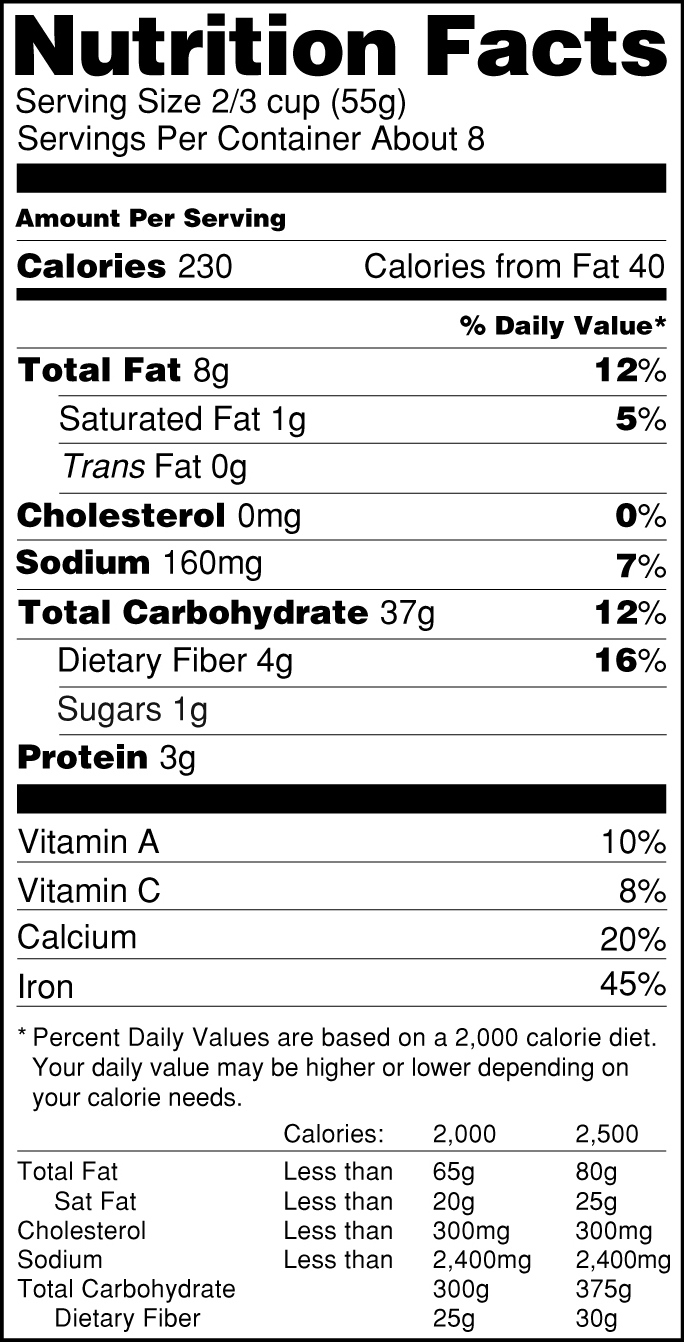




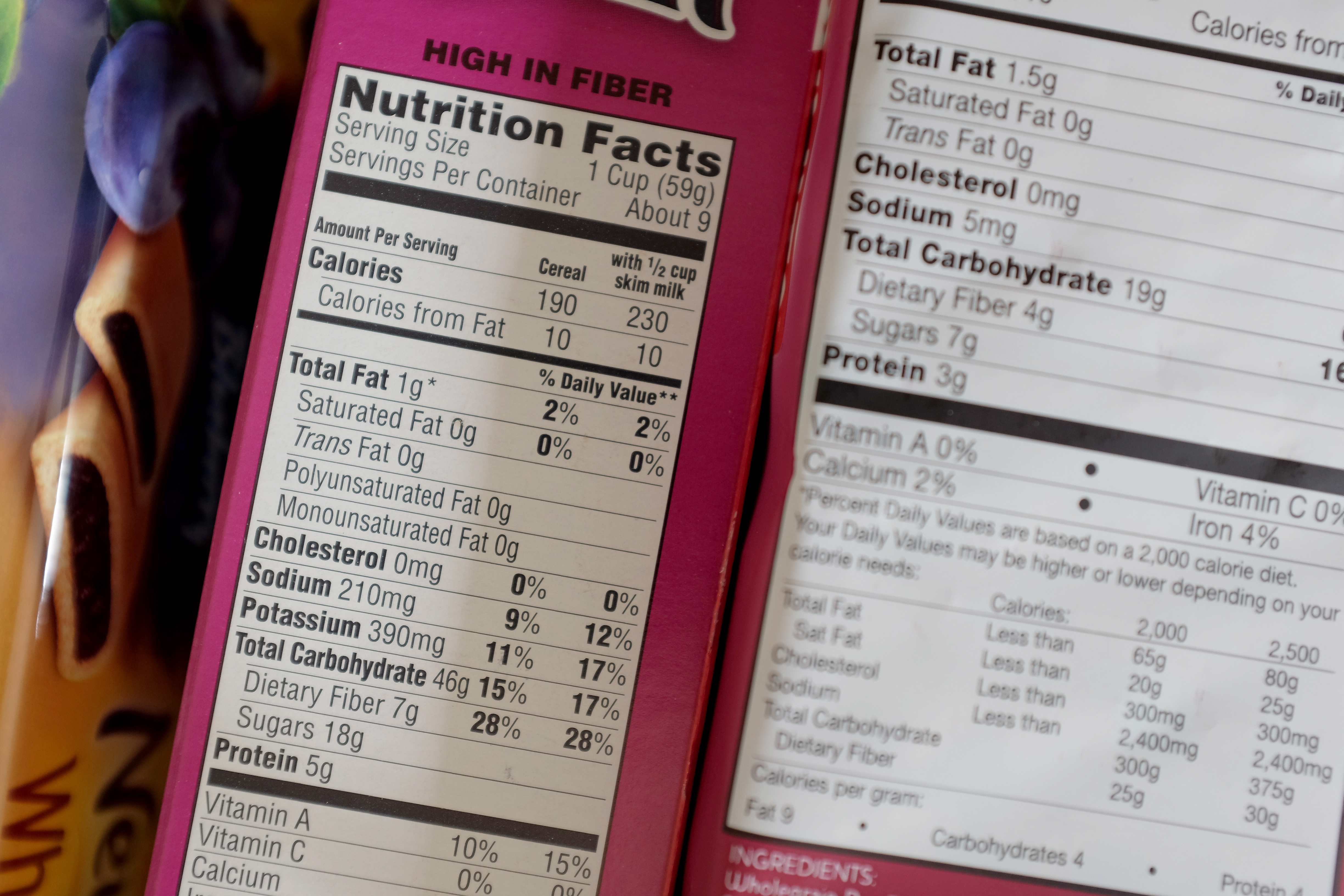


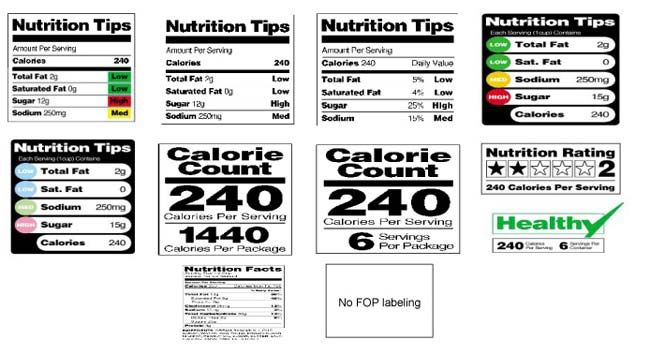
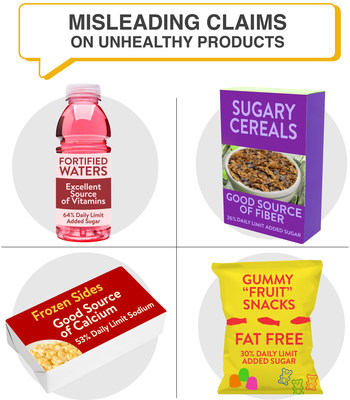

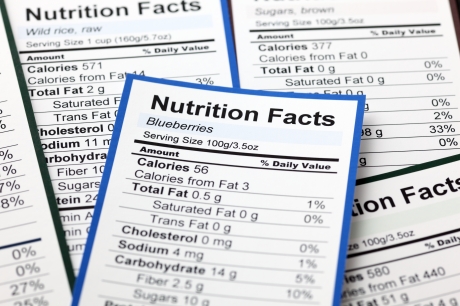
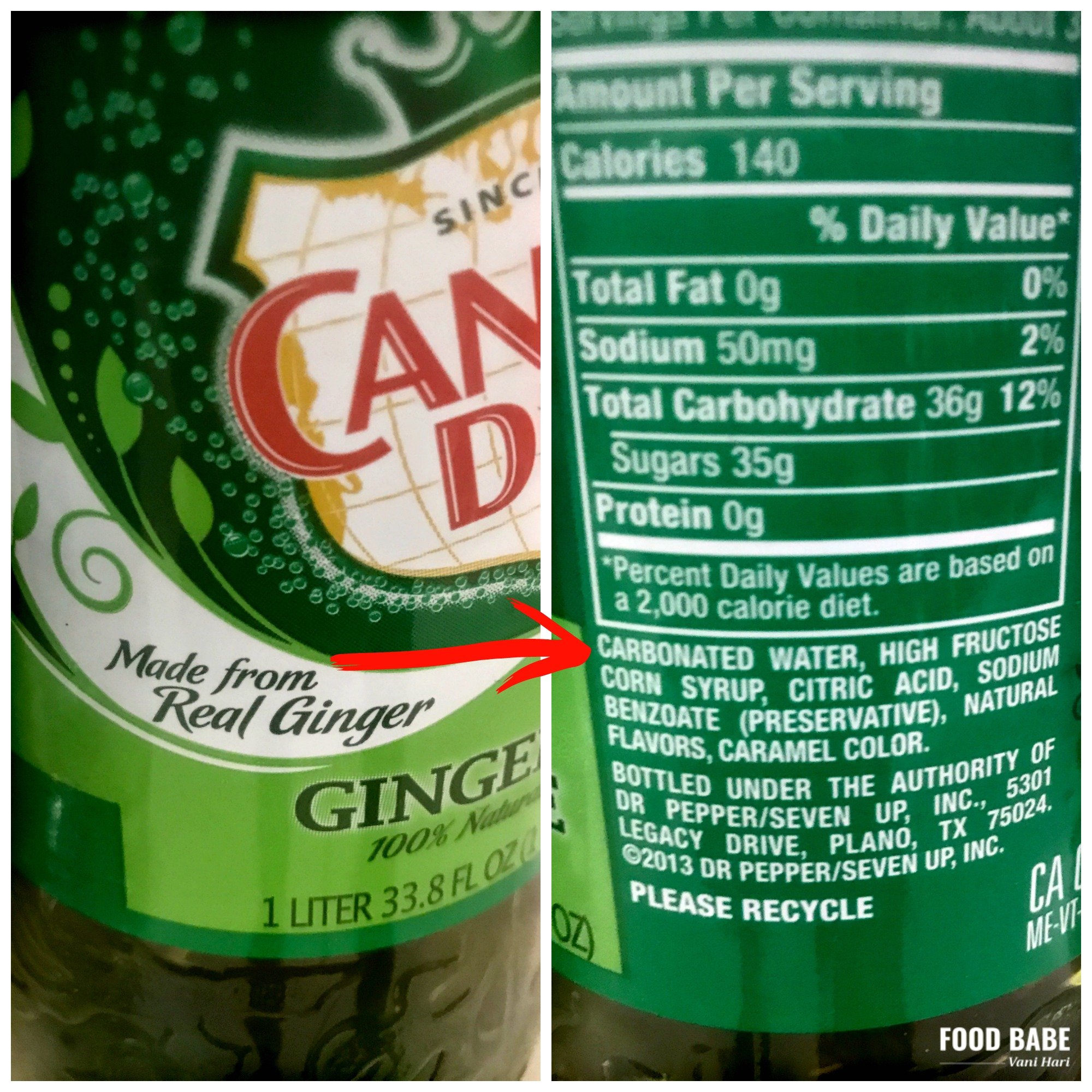
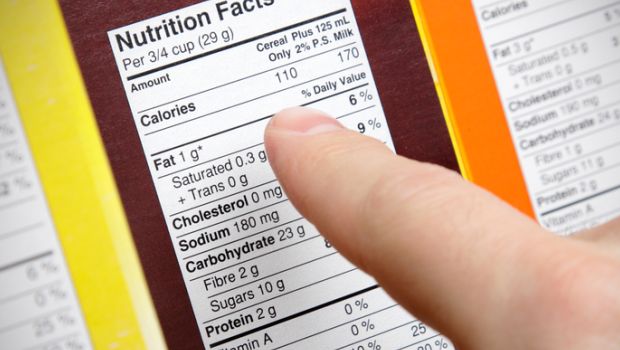
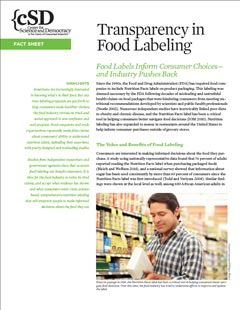

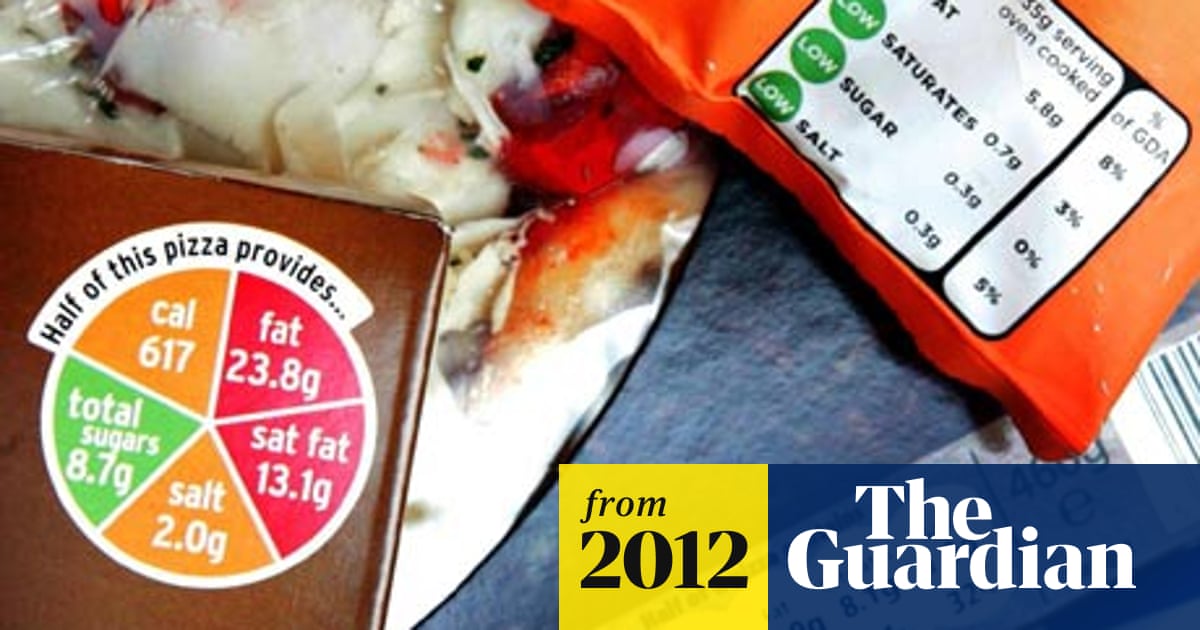


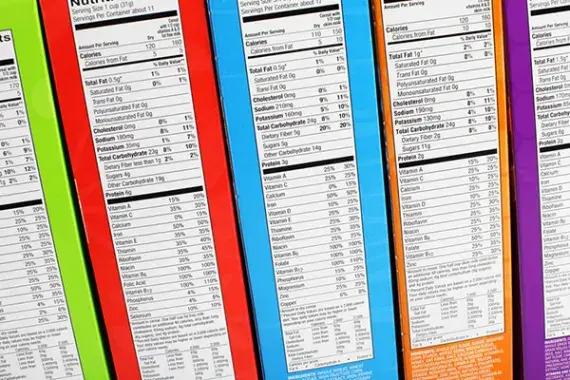




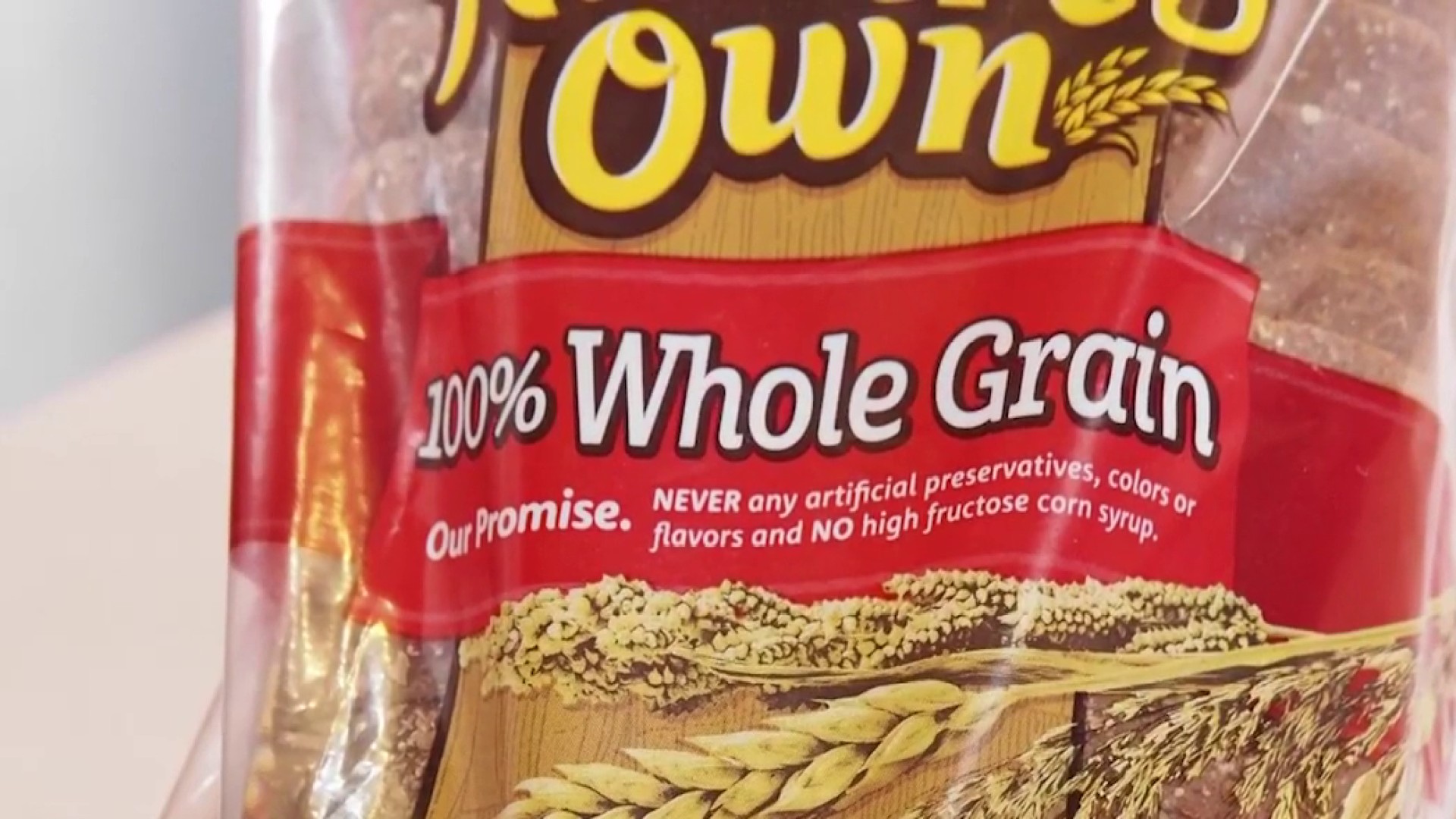
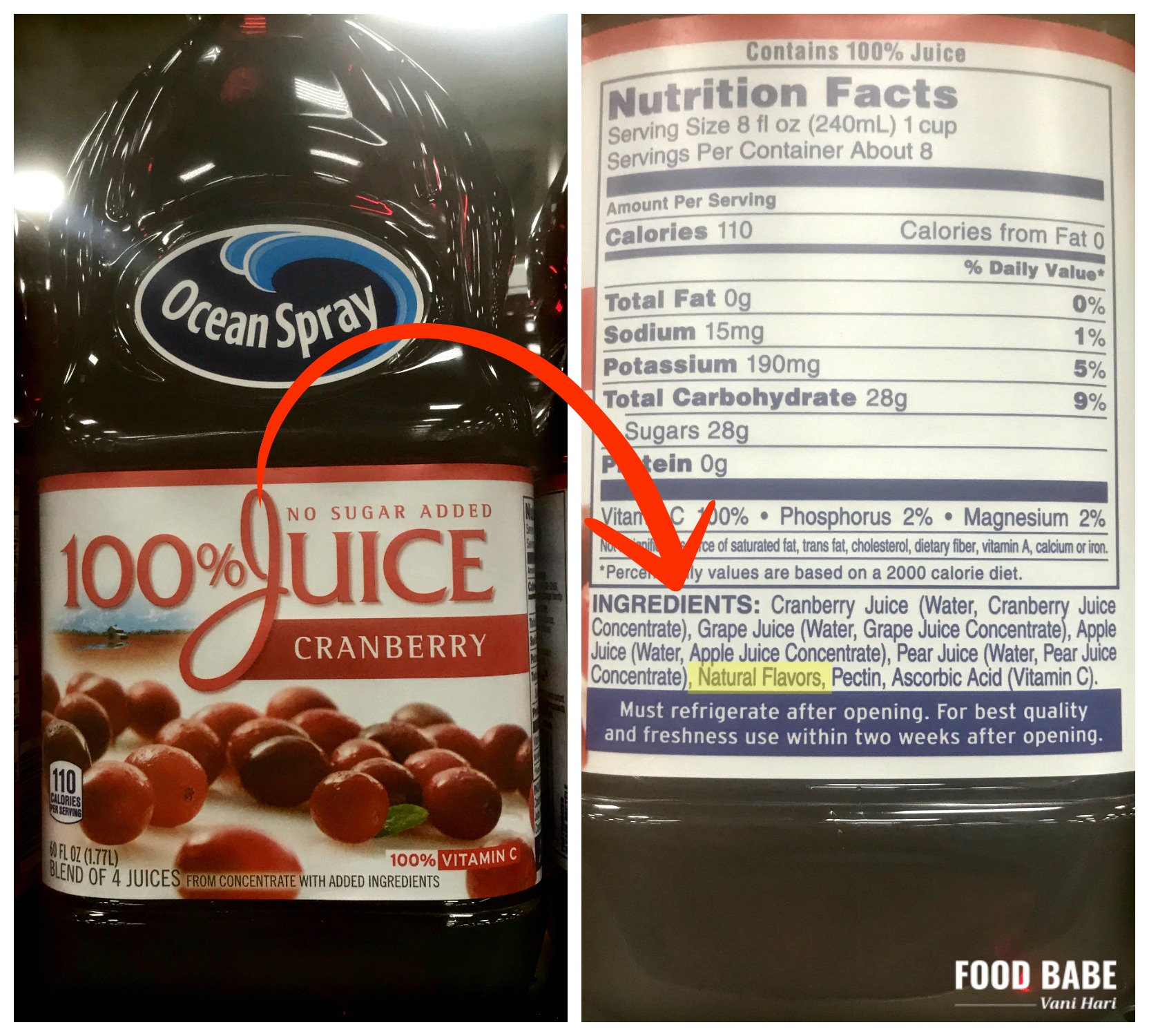

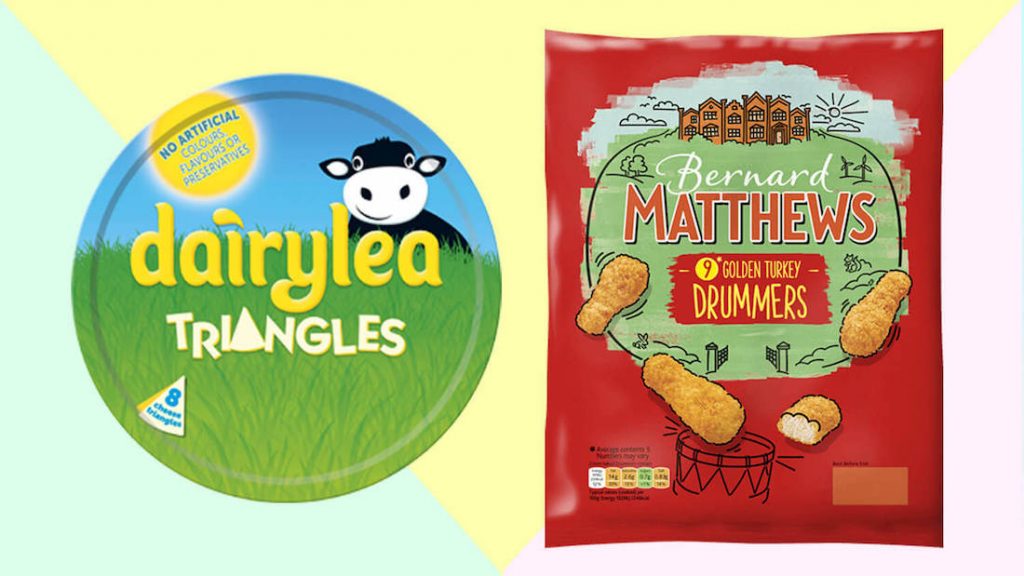

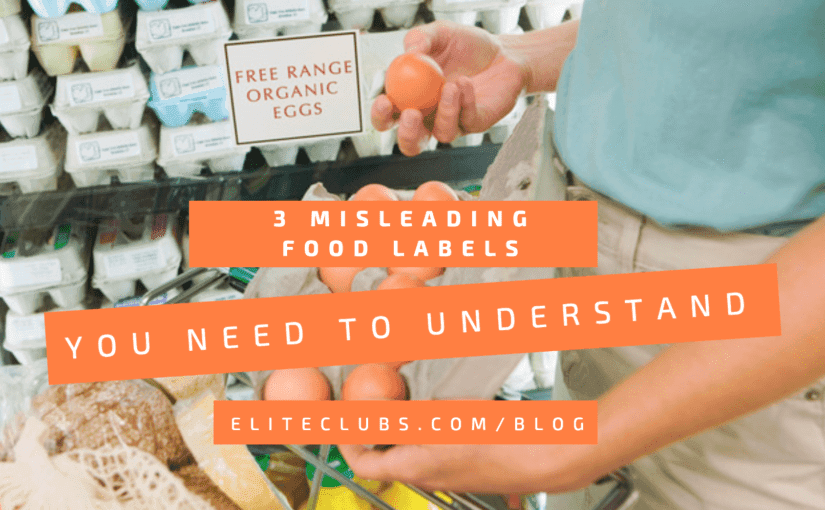
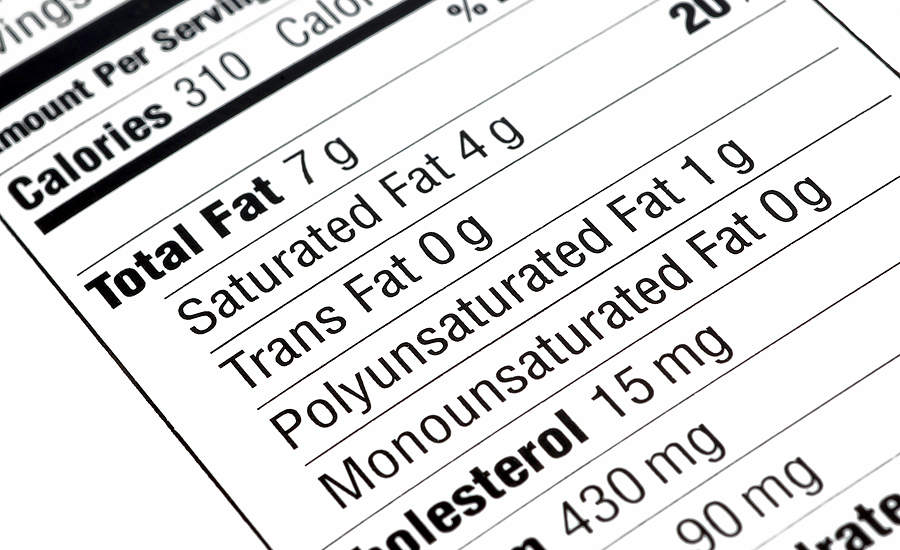
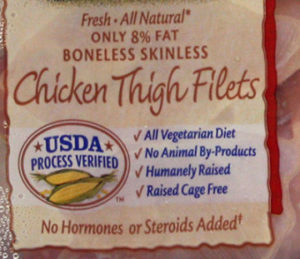



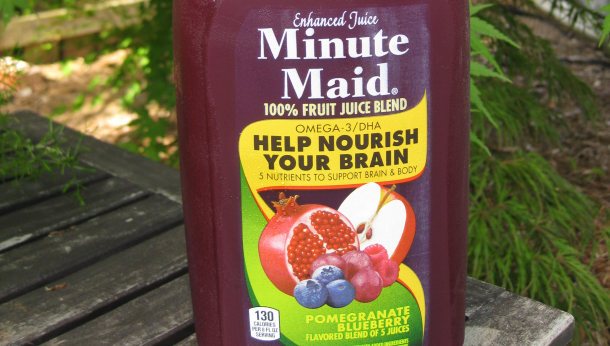
:max_bytes(150000):strip_icc()/oreo-sugar-free-400x400-1679202a775547cabf7be9d8385198a6.jpg)

Post a Comment for "42 how do food labels mislead consumers"